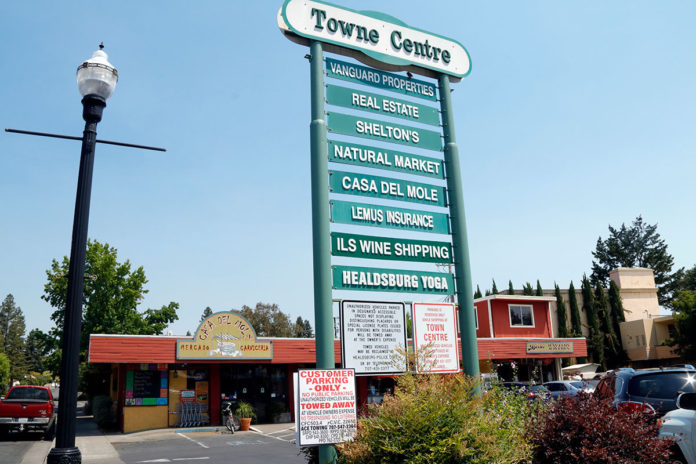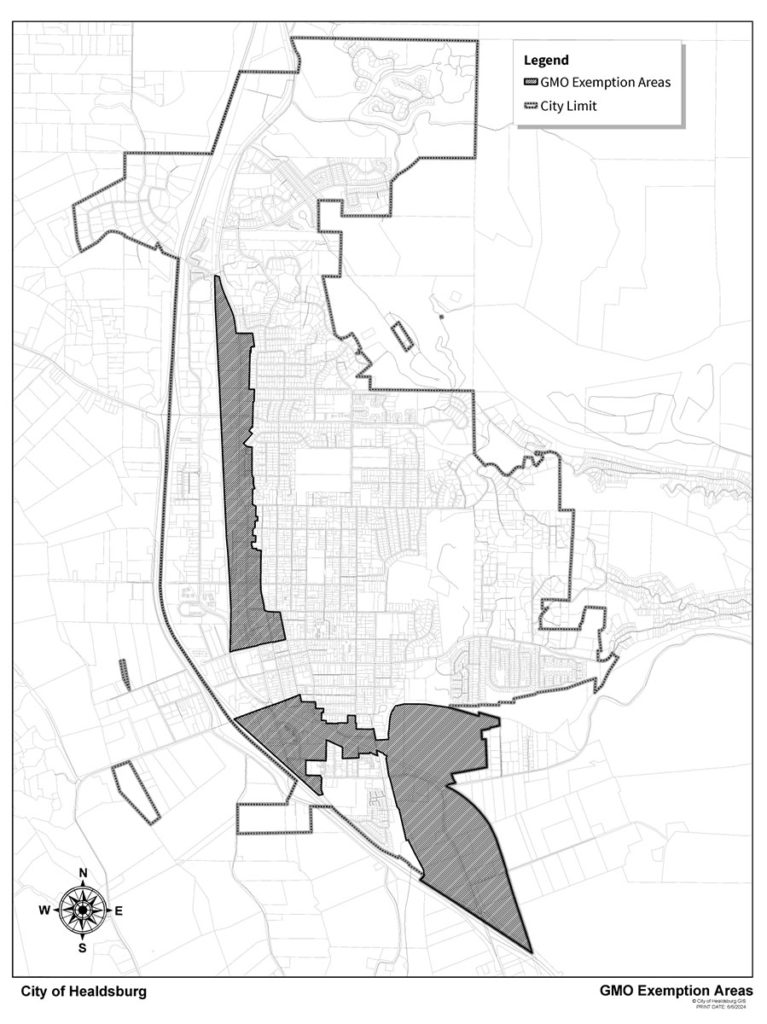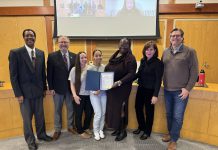
Faced with the task of crafting a ballot measure that was accurate, legal and appealing to the average voter, the Healdsburg City Council took pains to review the recommended wording for a November ballot measure that would amend the 24-year-old Growth Management Ordinance, or GMO.
The proposed wording, to be placed on the ballot in the general election on Nov. 5 of this year, was presented as follows:
“To encourage creation of workforce housing on underutilized parcels, should the City of Healdsburg exempt multi-family housing along portions of the Healdsburg Avenue corridor from the Growth Management Ordinance?”
This would be the latest in a long line of attempted revisions to the GMO that the city and its voters have grappled with for the past eight years. And, as it turned out, that wording itself was subject to final revision even as Monday’s meeting took place.
Background
Healdsburg voters adopted the GMO in 2000, back when Mike McGuire was on the City Council, to control residential growth. What was then called Measure M limited residential building permits for new construction to an average of 30 units per year, and no more than 90 over a 3-year period, with exclusions for low-income and accessory dwelling units.
However, the patterns of residential growth in Healdsburg that resulted never produced the middle-income or affordable units that the GMO was designed to encourage.
In 2016, the city attempted to revise the GMO with what was called Measure R, but it fell far short at the ballot box. Other incremental efforts to revise the GMO did pass, in 2018 and 2019, but failed to produce the desired results.
Meanwhile high-end developments at Montage Healdsburg and the Mill District closer to downtown were allowed to proceed, to much dissatisfaction among local residents. That’s why the city is now trying again to craft revisions to the GMO that would finally allow middle-income housing to be built in town—if developers can be found who will build it.
The proposed 2024 ballot measure cited above was to include specific maps for voters to evaluate what portions of the Healdsburg Avenue corridor would be affected, maps that evolved over previous meetings, including on June 3. Three specific areas are included:
The Healdsburg Avenue North Corridor, between North Street to Grove Street; the Central Healdsburg Area Plan or CHAP, the area between Mill Street and the Healdsburg’s Memorial Bridge; and the South Entry Area, south of the bridge to the city limits.

Roughly six city blocks in the downtown Plaza area would be excluded from housing development.
The Debate
Following Planning Director Scott Duiven’s presentation of the ballot wording, Councilmember Ariel Kelley began to question just how much the general public understood about workforce housing—a term used in the ballot question—or the GMO itself.
“When Councilmember Mitchell and I were interviewing planning commissioner applicants a couple weeks ago, it really kind of dawned on me (that) very few people know what the Growth Management Ordinance is,” she said. “I think that there is not a lot of deep knowledge … of what exactly is the challenge with the Growth Management Ordinance. And so I’m worried that we make assumptions in the ballot language.”
She suggested that, to augment the ballot term “workforce housing,” the term “middle class housing” might be included as well, since many might confuse workforce housing with affordable housing—which is already permitted in the GMO.
City Manager Jeff Kay gave the idea of modifying the proposed wording a qualified endorsement. “As much as I would be nervous with a whole lot of wordsmithing on the fly tonight, I don’t think that’s necessarily terribly complicated,” he said.
Then, to further complicate things, Kelley asked, “Do we have to use the words ‘Growth Management Ordinance’ in the ballot language?”
That question was punted to City Attorney Samantha Zutler, since the wording of a ballot measure has to be legal, and if it calls for amending an ordinance the name of the ordinance itself might need to be included.
The arguments went back and forth on both suggestions for some time, prompting Councilmember Evelyn Mitchell to say, “I really wasn’t anticipating that we would try to wordsmith this quite so much at this stage in the process.” However she then weighed in on the discussion, saying that workforce and middle-income housing sounded to her like opposite ends of the spectrum.
Closing In
As the discussion zeroed in on including both terms—“workforce and middle class housing”—the idea of dropping GMO from the wording became less popular. Mitchell opposed it, saying “It would feel like a political game that we’re playing not to include ‘Growth Management Ordinance.’ Otherwise, what are we doing?”
Kelley made another suggestion, to add the word “certain” to the text to clarify that the ordinance exclusions were limited, and while that was readily accepted she indicated she had other suggestions, too, but realized that if the council wasn’t interested in too much more wordsmithing, she could move on.
Part of Kelley’s dissatisfaction stemmed from the limitations placed by the Brown Act on council members from communicating with other council members. She had wanted to speak to others about her ideas prior to the meeting, but was constrained from doing so and instead forced to use the public forum of a council meeting.
When the council finalized a couple of small but key changes to the wording, a straw vote found all five voted yes on the adjustments. “‘We’ll need a lot more yesses to make it happen!” said Mayor David Hagele, referring to the majority vote the measure would require in November.
With the wordsmithing done, the ballot question will read, “To encourage creation of middle class and workforce housing on certain underutilized parcels, should the City of Healdsburg exempt multi-family housing along portions of the Healdsburg Avenue corridor from the Growth Management Ordinance?”
Not a lot of change in total word count, to be sure, but perhaps enough clarification that the measure, by whatever letter it is assigned, stands a better chance of passing in November.
A Housing and GMO Community Workshop to discuss these matters, co-hosted with Corazon Healdsburg, is scheduled for Wednesday, June 26, starting at 6pm at the Healdsburg Community Center.









Zoning Laws cause housing shortages. These laws protect the haves from the have-nots. These Zoning Laws also increase the properties of the haves in value. It’s a nice racket.